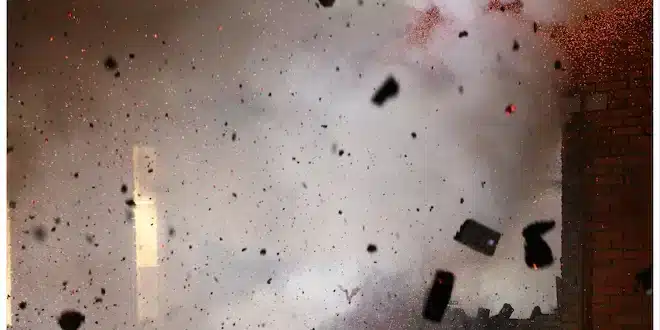Two recently retired senior Israeli intelligence officers revealed new details about a covert operation targeting Hezbollah in Lebanon and Syria, which utilized explosive devices hidden in pagers and walkie-talkies. The operation, years in the making, was carried out three months ago and was revealed in a segment on CBS’s “60 Minutes.”
The operation began over a decade ago with walkie-talkies laced with explosives, which Hezbollah unwittingly purchased from Israel. The walkie-talkies weren’t detonated until September, a day after the pagers, which had been rigged to explode, were triggered. The explosive devices were part of a larger plan to strike Hezbollah militants.
In 2022, Mossad learned that Hezbollah was acquiring pagers from a Taiwanese company and decided to turn the situation to their advantage. The pagers were altered to accommodate explosives and tested to ensure they would cause harm only to the target while minimizing risk to bystanders. Mossad also experimented with various ringtones to ensure the pagers would be noticed.
The operation also involved deceiving Hezbollah into thinking it was purchasing equipment from legitimate suppliers, using false ads and shell companies to mislead the Taiwanese firm. The pagers were marketed as rugged and efficient, convincing Hezbollah to buy a new, larger model with hidden explosives.
By September, Hezbollah had acquired thousands of these altered pagers. The explosive devices were detonated on September 17, causing widespread panic. The following day, Mossad activated the walkie-talkies, some of which exploded during funerals for victims of the pager explosions. The explosions were intended to send a powerful message to Hezbollah, demonstrating Israel’s technological superiority and the cost of challenging Israel.
The explosions caused significant psychological impact in Lebanon, with people fearing further attacks from everyday objects. Israel’s air strikes soon followed, leading to heavy casualties, including the assassination of Hezbollah leader Sayyed Hassan Nasrallah. The operation concluded with a ceasefire by November.
The Israeli agents behind the operation explained that the aim was not just to kill but to cripple Hezbollah, creating visible, long-lasting reminders of Israel’s power in the region. The fear instilled in the population, they explained, was part of the psychological warfare that Israel hoped to maintain as a deterrent.


